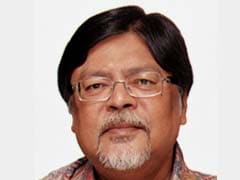With Low-Profile Kovind, Modi And Amit Shah Hit Bull’s Eye
Widely experienced, erudite, affable and highly knowledgeable about political affairs and processes, Ram Nath Kovind is almost certain to be India's next President. This is a remarkable achievement for a man coming from a family of farmers in UP's Kanpur Dehat district, especially considering he belongs to the underprivileged Dalit community. Never much of a publicity-seeker, many eyebrows were raised when the BJP announced his name as its candidate for the office of India's President - who apart from being the custodian of the constitution is also the Supreme Commander of its Armed Forces. He was in the limelight only briefly as national spokesperson of the BJP some years ago, before being posted as Governor of Bihar.
Mild mannered and a thorough gentleman, Kovind's choice by the BJP's helmsmen, Prime Minister Narendra Modi and the party president, Amit Shah, has once again been described as a masterstroke. By nominating a Dalit for the country's highest office, the BJP has put the entire Opposition on the backfoot. The Congress is at a loss for words to react, which was evident from Ghulam Nabi Azad's fumbling responses at its press conference on Monday, June 19. West Bengal Chief Minister Mamata Banerjee may condescendingly say: "Who is this man? Never heard of him", and one of her colleagues, a Rajya Sabha member, may well assert he had to find out Kovind's background from Wikipedia, but his accession as President seems unstoppable. The Opposition may still put up a candidate against him - the name of former Lok Sabha Speaker Meira Kumar, also a Dalit by birth - is already doing the rounds but clearly, the election is all over, bar the shouting!
This nomination is part of Narendra Modi's conscious and aggressive attempt to reinvent the BJP as a party of the poor and underprivileged, discarding its earlier image as a "Brahmin-Baniya party", in other words an organization catering to the interests of the upper castes and classes. Embracing Dalits or Scheduled Castes who comprise over 19 percent of India's population is central to the Modi-Shah project to make their party's electoral base impregnable.
Mild mannered and a thorough gentleman, Kovind's choice by the BJP's helmsmen, Prime Minister Narendra Modi and the party president, Amit Shah, has once again been described as a masterstroke. By nominating a Dalit for the country's highest office, the BJP has put the entire Opposition on the backfoot. The Congress is at a loss for words to react, which was evident from Ghulam Nabi Azad's fumbling responses at its press conference on Monday, June 19. West Bengal Chief Minister Mamata Banerjee may condescendingly say: "Who is this man? Never heard of him", and one of her colleagues, a Rajya Sabha member, may well assert he had to find out Kovind's background from Wikipedia, but his accession as President seems unstoppable. The Opposition may still put up a candidate against him - the name of former Lok Sabha Speaker Meira Kumar, also a Dalit by birth - is already doing the rounds but clearly, the election is all over, bar the shouting!
This nomination is part of Narendra Modi's conscious and aggressive attempt to reinvent the BJP as a party of the poor and underprivileged, discarding its earlier image as a "Brahmin-Baniya party", in other words an organization catering to the interests of the upper castes and classes. Embracing Dalits or Scheduled Castes who comprise over 19 percent of India's population is central to the Modi-Shah project to make their party's electoral base impregnable.




0 Comments